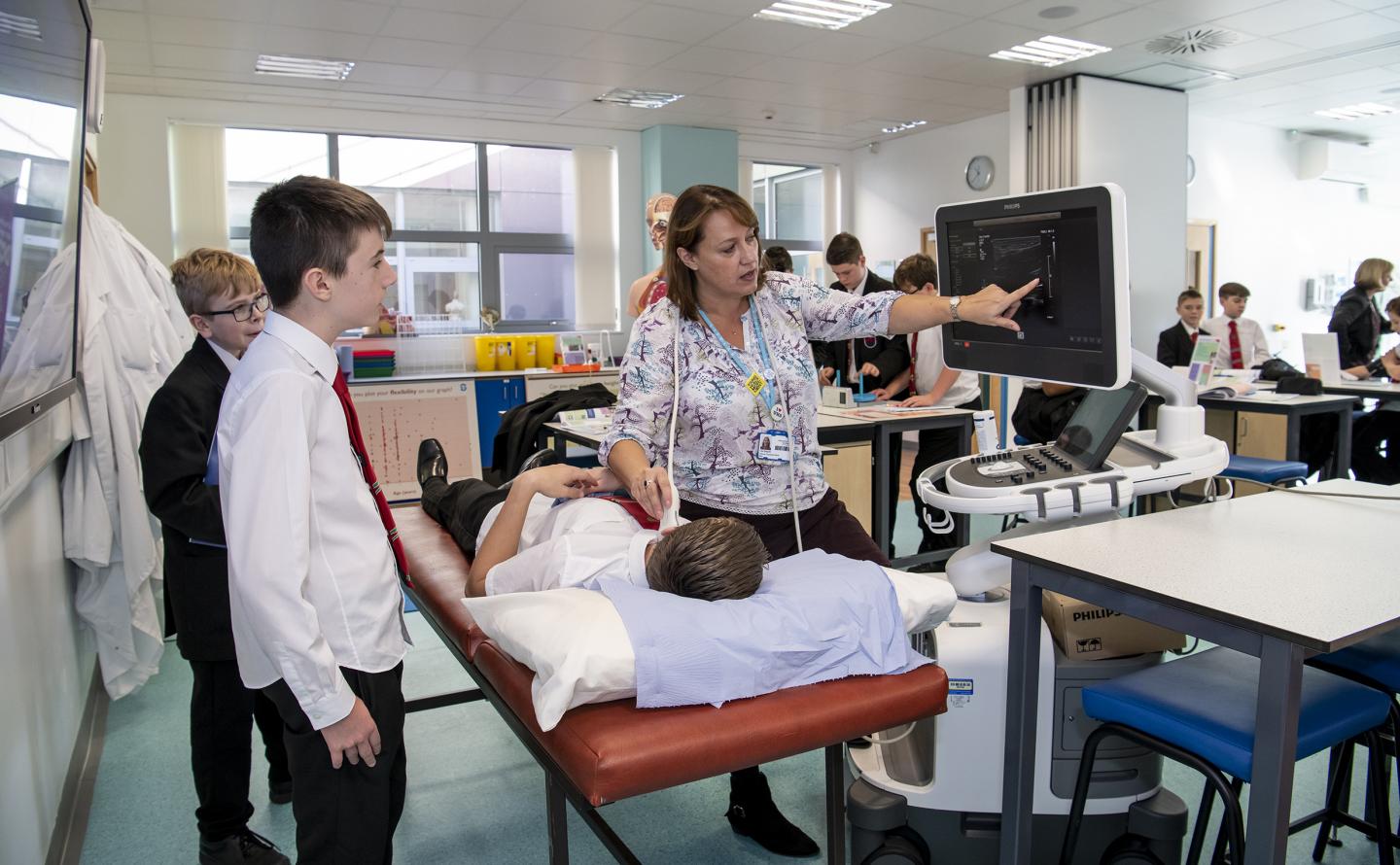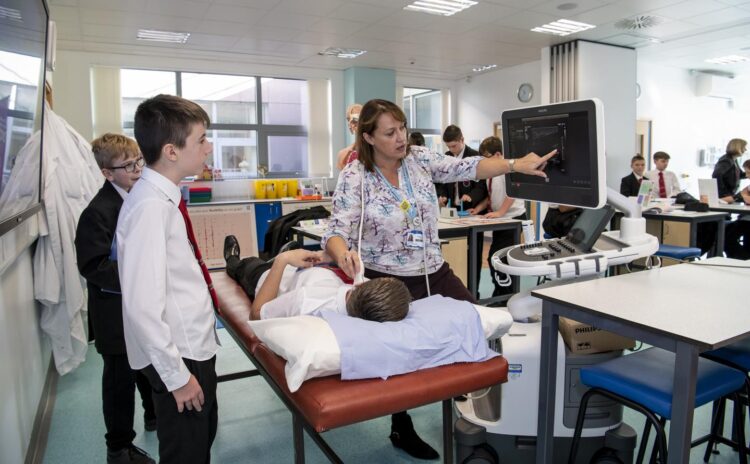
Credit: University of Southampton
A study by the University of Southampton has shown its LifeLab programme, aimed at improving adolescent health through hands-on learning, significantly increases young people’s understanding of what it means to lead a healthy lifestyle.
Led by a team from both the Faculty of Medicine and Education School at the University of Southampton, the LifeLab programme aims to encourage engagement with the science behind public health messages, to support development of health literacy alongside decision-making skills and promotion of adolescents’ sense of control over their lives and futures. Based at University Hospital Southampton (UHS) NHS Foundation Trust, LifeLab is a state-of-the-art teaching laboratory dedicated to improving adolescent health through science engagement.
Latest research, published in the journal PLOS ONE1 and funded by the British Heart Foundation, has found that participation in LifeLab was associated with an increase in students’ health literacy 12 months later. There was also evidence that participants subsequently judged their own lifestyles more critically than students who had not taken part in the programme.
Health literacy can be described as having the knowledge, skills, understanding and confidence to use health and care information and services and to apply these to lifestyle choices. Increasing evidence suggests that adolescence is a critical developmental stage during which lifelong health literacy can be established, offering a potential window of opportunity during which improvements in health literacy could benefit long-term health, and enable preparation for parenthood – passing on good health prospects to future children.
The randomised controlled trial was conducted in 38 secondary schools in England, drawing on principles of education, psychology and public health to engage students with science for health literacy, focused on the message ‘Me, my health and my children’s health’. The programme comprised a professional development day for teachers, a two to three week module of work for 13-14-year-olds and a ‘hands-on’ practical health science day visit to a dedicated facility in a university teaching hospital. Information was collected from 2929 adolescents aged 13-14 years, at baseline and 2487 at follow-up 12-months later.
“Experiencing LifeLab led to improved health literacy in adolescents and a move towards a more critical judgement of health behaviour 12 months after the intervention,” said Dr Kath Woods-Townsend, who leads the LifeLab programme. “By providing opportunities linked to the National Curriculum, and which meet schools’ needs, we have shown that students can be successfully engaged with the science behind the health messages, with lasting benefits for their health literacy.”
Sharing her thoughts, Professor Hazel Inskip, principal investigator on the study from the Medical Research Council Lifecourse Epidemiology Unit at the University of Southampton, said: “The importance of health literacy in young people is being increasingly recognised, but there are very few randomised controlled trials seeking to assess interventions that promote health literacy through working in partnership with schools. It is an exciting step forwards to show that such a programme can engage adolescents with science, leading to sustained changes in health literacy and more critical judgement of their own behaviour.”
Professor Keith Godfrey, a co-investigator on the study from the National Institute for Health Research Southampton Biomedical Research Centre, commented: “Interventions during adolescence have the potential for a ‘triple dividend’ of benefits now, into future adult life and for the next generation of children. The LifeLab programme paves the way for enabling young people to access, understand and reflect on what they need to do to live healthier lives.”
###
Notes to Editors
1) ‘A cluster-randomised controlled trial of the LifeLab education intervention to improve health literacy in adolescents,’ is published in the journal PLoS One and can be found at: https:/
2) The University of Southampton drives original thinking, turns knowledge into action and impact, and creates solutions to the world’s challenges. We are among the top 100 institutions globally (QS World University Rankings 2021). Our academics are leaders in their fields, forging links with high-profile international businesses and organisations, and inspiring a 22,000-strong community of exceptional students, from over 135 countries worldwide. Through our high-quality education, the University helps students on a journey of discovery to realise their potential and join our global network of over 200,000 alumni. http://www.
3) More about LifeLab can be found at: https:/
For further information contact:
Peter Franklinn, Media Relations, University of Southampton. Tel: 07748 321087 Email: [email protected]
http://www.
Follow us on twitter: http://twitter.
Like us on Facebook: http://www.
Media Contact
Peter Franklin
[email protected]
Related Journal Article
http://dx.





